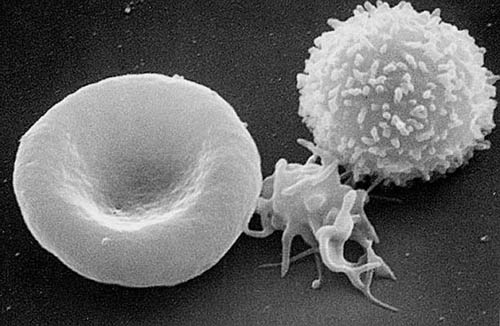Researchers Transform Skin Cells Directly Into Blood Cells
A new method could yield effective treatments for a host of diseases

Canadian researchers have turned skin cells into blood cells, a breakthrough that could lead to new cancer therapies while avoiding the controversial use of stem cells.
With the new technique, people who need blood for surgery, cancer treatment or other conditions could have a ready supply of their own blood, made from a patch of skin.
Clinical trials could begin as soon as 2012, according to McMaster University in Ontario.
During a two-year study, researchers took skin cells from adults and newborns to prove that it works with skin cells of any age. They added a gene called OCT4 and a group of proteins known as blood transcription factors. Depending on the protein mix, the skin cells became various blood cells, including red blood cells, white blood cells and platelets.
Scientists have already shown that skin cells can be converted into pluripotent stem cells, which can then become any type of cell in the body. But this research is the first to show that skin cells can be directly converted into blood cells without becoming stem cells first. It is faster, safer and easier to do, and avoids the problems associated with stem cell research. It is also the first study to produce adult blood cells, unlike other research that works with embryonic stem cells.
It could also be an advance over synthetic blood, which is expensive to produce and could be years away from approval.
Other researchers hailed the study, published in the journal Nature, as a breakthrough for patients with cancer, anemia and other blood disorders, and for anyone interested in hematology. Producing blood from a patient’s own skin cells could make bone marrow transplants — and the difficulty of finding matching donors — a thing of the past, according to Alain Beaudet, president of the Canadian Institutes for Health Research, which funded the study.
The team is working on methods to produce large quantities of blood by growing skin cells in a lab before converting them into blood cells, according to the Guardian. Eventually, the scientists will freeze and thaw the blood to see how it holds up in cold storage.